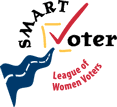 |
|
||
Campaign Finance Reform: Can Anthing Be Done?By Tony MillerCandidate for Lieutenant Governor | |||
This information is provided by the candidate | |||
Elections that are for sale are not free. That is true whether they are purchased by a wealthy candidate or by special interests. Together we CAN do something about it.Al Checchi. Jane Harman. Darrell Issa. They have one thing in common. They are each spending millions of their own dollars in an attempt to buy favor with California voters. They do so without apology, arguing that self-funding of their campaign frees them from any appearance of special interest influence. The argument has some merit. It is less offensive for candidates to buy office with their own money than with tobacco, insurance or liquor company money. But elections that are for sale are not free and that is true whether they are purchased by candidates directly with their own money or with special interest money. Proposition 208, sponsored by AARP, the League of Women Voters of California, Common Cause and United We Stand America and approved by 61.3% of the voters in 1996, is blamed by some for aggravating the wealthy candidate problem. Critics fault it even though it has nothing to do with Darrell Issa who is running for federal office or Jane Harman who became a candidate after Proposition 208 was enjoined and only after Dianne Feinstein backed out at the last minute. According to the critics, contribution limits, such as those contained in Proposition 208 and in federal law, give a competitive advantage to wealthy candidates who can fund their own campaigns without limits. Critics charge that non-wealthy candidates are stuck with contribution limits which make it difficult for big contributors to contribute large enough amounts of money to adequately fund the poor candidatesí campaigns. To level the playing field, so the argument goes, poor candidates must accept huge contributions from special interests in order to compete. To be sure, Proposition 208 did not fix the wealthy candidate problem although it did address it within the parameters of Supreme Court decisions. Proposition 208 did limit loans to oneís own campaign, the traditional funding source for wealthy candidates. Further, it did require that ballots and ballot pamphlets disclose which candidates had agreed to limit spending, something which is of keen interest to many voters. And, as a safety net, Proposition 208 did raise political party contribution limits to candidates who agreed to limit spending if they faced well-funded candidates who did not agree to limit spending. These steps would have reduced the competitive advantage of wealthy candidates while, at the same time, reducing the ability of well-funded special interests to dominate the process. Given the federal court injunction issued on January 6, 1998, it may never be known just how well Proposition 208 would have worked. Can anything really be done to prevent the sale of elections to the highest bidder? Is tobacco or insurance or trial lawyer or union money the only way to counter the wealth of a Checchi or Harman or Issa? Are we really helpless to prevent wealthy candidates and well-funded special interests from dominating the process? It should be remembered that the wealthy candidate phenomenon is not new. The political landscape of California is littered with the bodies of millionaires who tried, unsuccessfully, to transform great personal wealth into high political office. Roth. Simon. Bruinsma. Huffington. Unz. These names are but footnotes in the recent political history of California. Their strength (wealth)typically became their weakness as voters found them to be out-of-touch with the needs and dreams of ordinary Californians. Donít underestimate the ability and the willingness of California voters to look beyond 30-second sound bite television and radio ads. But much can be done to level the playing field without running afoul of Supreme Court decisions. Full and timely disclosure of significant contributions is part of the solution. The public has a right to know who is giving what to whom. Disclosing campaign finance information in ads and posting campaign financing information on the Internet are long overdue steps in the right direction. Such disclosure will help prevent some of the abuses we have seen. Limitations on contributions and incentives to limit spending also have a place in the reform package. Providing tax credits for small contributions from individuals would make contribution limits far more workable. Candidates would have a new, non-corrupting funding source as they wean themselves from the addiction to big money contributions. And small-donor-based organizations, as well as political parties, should be treated differently in terms of contribution limits, because of their special role in the political process. Contribution and spending limits, however, are only part of the solution. We need to focus not only on limiting the supply of money in campaigns but also on finding ways to reduce the demand for money by lowering the cost of campaigns. Real reform must focus on floors as |
Candidate Page
|| Feedback to Candidate
This Race
|| June 1998 Home (Ballot Lookup)
|| State Election Links
About Smart Voter
Created from information supplied by the candidate: June 1, 1998 23:33
Smart Voter '98 <http://www.smartvoter.org/>
Copyright © 1998 League of Women Voters of California Education Fund, Smart Valley Inc.
The League of Women Voters neither supports nor opposes candidates for public office or political parties.